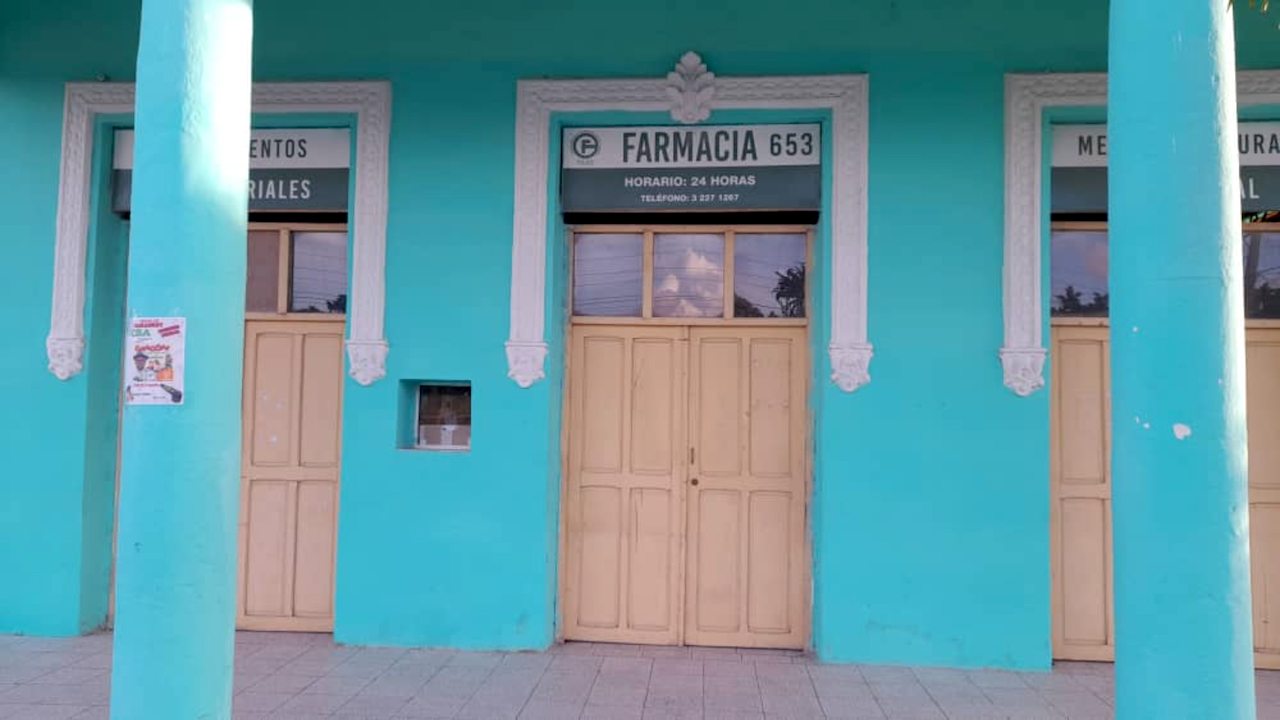The medications crisis is not going away in Cuba. In fact, it is being exacerbated by inflation, so many Cubans have to turn the black market to get what they cannot find at state pharmacies and hospitals.
In Camagüey, a blister pack of clonazepam costs 900 pesos; a bottle of ibuprofen, 1,600; and antibiotics such as azithromycin, cephalexin and amoxicillin, between 500 and 1,000.
In July the state company BioFarmaCuba acknowledged that there are shortages of 251 drugs, ones both manufactured in the country and imported, which represents 40% of the set of vital medicines.
"Because I'm diabetic, I have to speak out about difficult situation I'm going through due to the lack of medicines at pharmacies that we need to keep this fearsome disease at bay," Gustavo Hernández recently said on his Facebook profile.
"For years we haven't been sold test strips to measure blood glucose, and I haven't taken pills like glibenclamide for months, because there are none," he added.
For patients like Hernandez, who are permanently dependent on medications, dealing with state pharmacies is an ordeal. Sometimes they stand in line outdoors for more than 24 hours before being told that the medicine has simply run out.
"This is the third time I've come to the pharmacy and, after standing for more than three hours, the medication had run out. The other two times it hadn't come in," said Juan, age 75.
Guelmi Adbul told DIARIO DE CUBA that supplies arrive at the pharmacy located in the community of Santa Rita, in the municipality of Camagüey, on Thursdays or Fridays, but "they don't open to the population, and on Monday there are no medicines left."
"Last year, I myself complained about the irregular scheduling, and their refusal to sell to people with a prescription. The provincial government received my complaint, sent it to the official in charge of pharmacies and opticians, but there's been no solution, everything remains the same," she added.
The black market is the only option left for many families desperate for medicines.
Marianela Sánchez, who lives in the department of La Caridad, in the city of Camagüey, said that in order to take the metformin she needs, she had to buy it from online sales groups, for 1,000 pesos per strip. They are "the same pills produced in the country," she said, alluding to another drama: the diversion of drugs manufactured on the island to the underground market.
The Cuban doctor Camilo Oliva, a resident of the province of Camagüey, recently pleaded for help on social media to obtain supplies for hemodialysis.
"I need help with medical supplies for hemodialysis, as I'm affected every week by the lack of them, with no solution," he said.
"After almost five years living without a kidney (and those who know me know that it was completing a mission for the same health system that continues to brush me aside shortening my life, and its quality) I am living with my last arteriovenous fistula, without any other possibility," he said.
A survey by the Cubadata project confirmed that it is harder and harder to access medicines in Cuba. More than half of the Cubans surveyed (55.8%) described it as "impossible" to get them.
If we add to them those who consider it "very difficult," 80.3% of the population reports serious problems obtaining medicines.
This data points to a humanitarian crisis, which the Havana regime justifies under the usual pretexts while it continues to allocate massive resources to build hotels to accommodate tourists who are not arriving.
